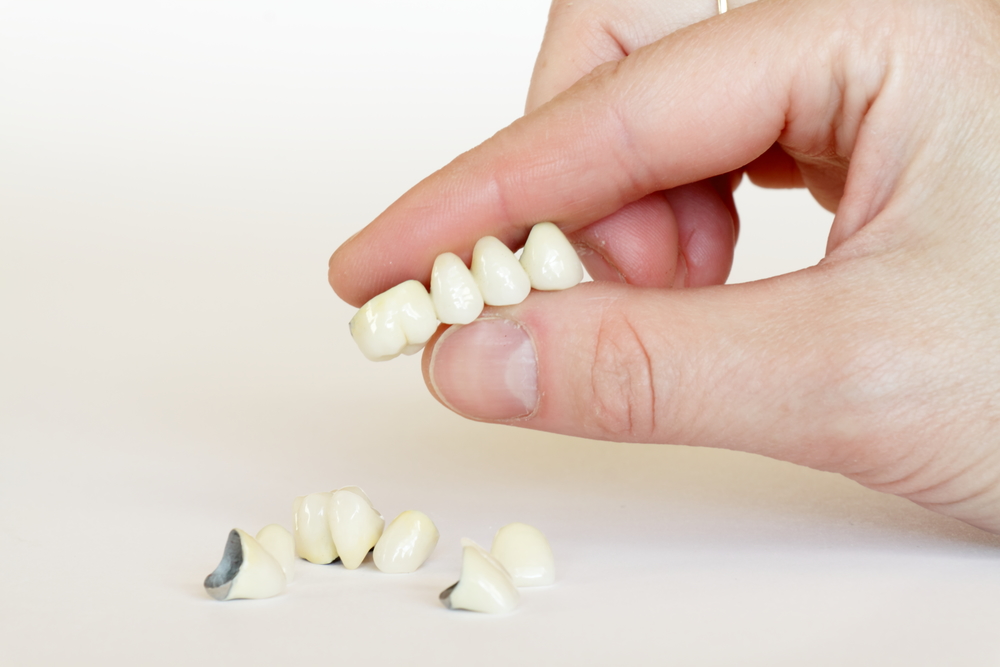
Having a dental crown placed is often the final step in fixing a tooth with issues. While crowns are a long-term solution for repairing damaged teeth, complications can still arise. A poorly installed dental crown can lead to pain, sensitivity, and other complications.
These are some of the most common dental crown problems and solutions.
Dental Decay
Not committing to excellent oral hygiene after having a dental crown placed may allow for plaque to accumulate at the margin where the crown meets the tooth. While a dental crown cannot decay, your natural tooth underneath can.
Solution:
If you already have minor tooth decay in an accessible area, a filling can be placed. If the decay is under the crown, the crown will need to be removed to remove the decay. Taking proper care of your teeth through great oral hygiene is the best way to protect your investment in the associated cost of a crown.
Sensitivity and Discomfort
It is common for teeth to be sensitive to hot or cold foods in the days following a dental crown procedure. The tooth enamel is trimmed away during the crowning process, and the sensitive dentin in your tooth is exposed.
Solution:
If you find that your tooth sensitivity is lasting longer than it should, or if something doesn’t quite feel right, let your dentist know right away. A solution can be applied to the crowned tooth to protect the exposed dentin from temperature change. Your solution may also be as simple as switching to a toothpaste designed for sensitive teeth.
Loose Crown
Eating foods that are sticky, chewy, or gummy can cause your crown to become loose. A loose crown allows for bacteria to leak into your natural tooth and will cause further decay.
Solution:
If you begin to notice your crown moving, contact your dentist immediately. Your crown should never be loose fitting.
Nerve Issues
Your teeth have a soft pulp where all of the nerves inside of the tooth are located. In the process of getting a dental crown, these nerves can sometimes be traumatized leading to discomfort. You may experience anything from mild sensitivity to excruciating pain. This type of nerve sensitivity can last for several months following a crown procedure.
Solution:
If the nerve discomfort in your tooth does not go away on its own after several months, your dentist will likely recommend a root canal. This will allow for the sensitive nerves inside your tooth to no longer cause you discomfort. A crown will need to be placed over your tooth post root canal.
Chips or Fractures
Crowns are most commonly made of all porcelain or porcelain fused to metal. Because of the material they are made from, it is not uncommon for a crown to chip.
Solution:
If the chip is small, a composite resin can be used to repair the chip with the crown remaining in your mouth. If the chipping is extensive, the crown may need to be replaced.
Allergic Reactions
Very few patients experience an allergic reaction after having a crown placed. That being said, some people are allergic to certain types of metals used to make a crown, and they may not be aware of this until the crown has already been placed.
Solution:
If you find yourself having any type of allergic reaction to a new crown, the best solution is to have a completely new crown made from a different kind of material.
Discoloration at the Gumline
Porcelain crowns that are infused with metal can leave a dark line at the gum. This dark line is simply the metal of the crown showing through. While it does not pose any health concerns, it may not be aesthetically pleasing, especially if your crowned tooth shows when you smile or speak.
Solution:
If the dark line forms in the front of your mouth, your dentist can replace your crown with an all-ceramic or all-porcelain option. It is also recommended to initially have a crown that is not made of metal placed on a front tooth from the beginning to avoid this potential issue.
Bite Not Right
During a fitting, your dentist will evaluate how the crown connects with your other teeth before cementing it into place. Despite best efforts, it is common for a crown not to be precisely the right shape and you may notice this while biting down. Initially, you may find this as an annoyance, but as you put excess pressure on your tooth repeatedly, it may begin to traumatize the tooth.
Solution:
An Improperly shaped crown can easily cause a bite issue, and luckily this is an easy fix. Your dentist can reshape the existing crown to alleviate any pain or discomfort.
We always want our patients looking and feeling their very best, and if you’re experiencing a problem, we want to make it right! If you are experiencing issues with a dental crown, let Hinsdale Dentistry know right away.